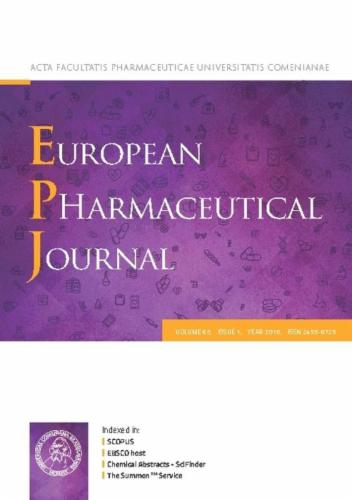研究药物与人体肠道菌群之间的双向相互作用
IF 4.7
3区 医学
Q1 PHARMACOLOGY & PHARMACY
引用次数: 0
摘要
生物老化是一个时间依赖性的过程,对健康和疾病有影响。细胞衰老是衰老和年龄相关疾病的关键驱动因素。衰老治疗药物已被证明可以通过消除哺乳动物的衰老细胞来延缓生物衰老。鉴于人们对肠道微生物群调节人类健康的认识日益提高,本研究旨在探讨老年治疗药物作为药物干预对人类肠道微生物群的影响。在这项研究中,研究了槲皮素、非瑟酮、达沙替尼和西罗莫司四种老年治疗药物与健康人类供体肠道微生物群的双向作用。结果表明,槲皮素在6小时内被肠道菌群完全生物转化,而达沙替尼是四种化合物中最稳定的。此外,宏基因组学分析证实,所有四种化合物都增加了与健康衰老相关的细菌种类的丰度(例如,脆弱拟杆菌、长双歧杆菌和细小细孔杆菌),并减少了主要与年龄相关疾病相关的致病菌的丰度(例如,粪肠球菌和链球菌)。这项研究的结果提供了对老年治疗干预的药物生物学的全面理解,强调了微生物组靶向抗衰老药物在促进健康老龄化方面的潜力。本文章由计算机程序翻译,如有差异,请以英文原文为准。

Investigating the bidirectional interactions between senotherapeutic agents and human gut microbiota
Biological ageing is a time-dependent process that has implications for health and disease. Cellular senescence is a key driver in ageing and age-related diseases. Senotherapeutic agents have been shown to slow biological ageing by eliminating senescent mammalian cells. Given the increasing awareness of the gut microbiome in regulating human health, this study aimed to investigate the effects of senotherapeutic agents as pharmacological interventions on the human gut microbiota. In this study, the bidirectional effects of four senotherapeutic agents, quercetin, fisetin, dasatinib, and sirolimus, with the gut microbiota sourced from healthy human donors were investigated. The results revealed that quercetin was completely biotransformed by the gut microbiota within six hours, while dasatinib was the most stable of the four compounds. Additionally, metagenomic analysis confirmed that all four compounds increased the abundance of bacterial species associated with healthy ageing (e.g., Bacteroides fragilis, Bifidobacterium longum, and Veillonella parvula), and decreased the abundance of pathogenic bacteria primarily associated with age-related diseases (e.g., Enterococcus faecalis and Streptococcus spp.). The findings from this study provide a comprehensive understanding of the pharmacobiomics of senotherapeutic interventions, highlighting the potential of microbiome-targeted senolytics in promoting healthy ageing.
求助全文
通过发布文献求助,成功后即可免费获取论文全文。
去求助
来源期刊
CiteScore
9.60
自引率
2.20%
发文量
248
审稿时长
50 days
期刊介绍:
The journal publishes research articles, review articles and scientific commentaries on all aspects of the pharmaceutical sciences with emphasis on conceptual novelty and scientific quality. The Editors welcome articles in this multidisciplinary field, with a focus on topics relevant for drug discovery and development.
More specifically, the Journal publishes reports on medicinal chemistry, pharmacology, drug absorption and metabolism, pharmacokinetics and pharmacodynamics, pharmaceutical and biomedical analysis, drug delivery (including gene delivery), drug targeting, pharmaceutical technology, pharmaceutical biotechnology and clinical drug evaluation. The journal will typically not give priority to manuscripts focusing primarily on organic synthesis, natural products, adaptation of analytical approaches, or discussions pertaining to drug policy making.
Scientific commentaries and review articles are generally by invitation only or by consent of the Editors. Proceedings of scientific meetings may be published as special issues or supplements to the Journal.

 求助内容:
求助内容: 应助结果提醒方式:
应助结果提醒方式:


